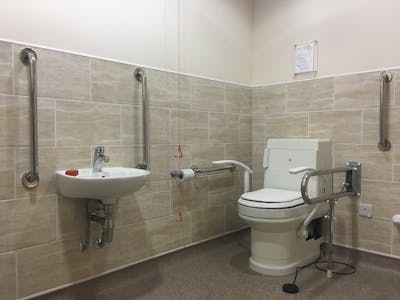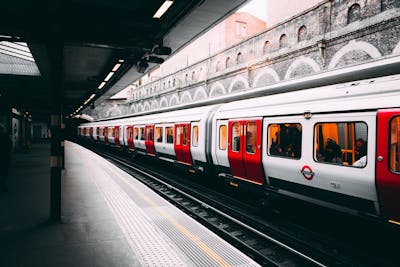What Is The Difference Between Assisted Living & Independent Living?
Published: 8 February 2022 · Last Updated: 23 January 2024
As we get older, some of us could require additional support to help us with our everyday tasks, in the hope of retaining independence for as long as possible.
That may not always be the case for others who could need assistance in a wider range of those day-to-day tasks.
Whatever the case may be, it is important that, whether it is for ourselves or for a loved one, we consider altering our living options as we age. Some of the changes that people tend to make are grab bar installations, a future-proofed
The bathroom plays a key role in our lives as we need the right bathing design that meets all of our needs and requirements. For individuals who need assistance, or maybe those who want to retain their bathroom independence then opting for an accessible or mobility bathroom could help you in the long run. Providing you with a safe, comfortable and overall better bathing experience.
We are going to analyse the assisted and independent living environments, the differences between them and provide the pros and cons of both living situations.
What is the difference between assisted living and independent living?
In simple terms, before we jump into the bulk of the article, the difference between assisted and independent living is that with assisted living there is a more hands-on approach to your overall daily life, handled by professionals, who see to it that you’re well catered for.
Whereas if you’re independently living you are in complete control of your entire life with a few adaptations that may be put into place to help make your daily life easier.
What is assisted living?
Assisted living is an extra care housing facility that provides a living environment for individuals who need extra support because they can’t or struggle to live independently, but do not need to have the full assistance that a care home provides.
If you’re in an assisted living situation then you do live independently, however, you do have access to professionals who are on-site to help with day-to-day if required, and up to 24 hours a day to help with other services like personal care. Some of the services may include:
> 24-hour supervision
> Assistance with day-to-day tasks
> Medication management
> Help with their meal preparation and cooking
> Housekeeping
> Transport to social activities and group programs
Pros of assisted living
When it comes to assisted living there are plenty of benefits for those that need comprehensive care.
They will have members of staff who will be on-site at the assisted living premises and will help them at any moment's notice. This gives the client an improved quality of life and a sense of security, knowing that within a short distance of their environment, there are members who will see to their well-being and provide help.
Those who are in an assisted living environment are also given a personalised plan that the care providers create that is tailored to meet their needs and preferences.
.jpg?auto=compress%2Cformat&cs=strip&ixlib=php-1.1.0&s=edc479dd47a66218cd76b89dbc070555)
Safety is a huge factor that is thoroughly considered in assisted living. With a personalised plan in place, for some of the day-to-day tasks that they need help with, a member of staff will go and give them extra support to prevent accidents or injuries from occurring. This particularly could help those with mobility issues and concerns as they would be provided with the help they need.
As all of us need to socialise, assisted living facilities consist of people who are of the same age or like-minded which is huge because the individuals can go and socialise in communal lounges or even arrange activities with other members of the facility. It is a fantastic way to ensure that each individual stays active, and connected with others, reducing the risk of loneliness or isolation.
Most of all, this gives the members of the family whose loved ones are in assisted living peace of mind knowing that their well-being is being managed and well looked after by professionals.
Cons of assisted living
Just like with most things, assisted living does come with its drawbacks that you’ll have to consider.
For those who love their independence then it might take a bit of an adjustment period in assisted living. They would have to get used to limited privacy as the caregivers would have to be present for assistance in some tasks.
Another factor we have to not overlook is the cost of assisted living. Due to the level of care that is needed, and varied prices of accommodation, assisted living can be expensive. There are a few things that you should take into account:
> Monthly rent
> Care services
> Meal
> Utilities and maintenance
> Transportation
Those are just a few of many things to think through when you’re looking at the costs of assisted living options. Assisted living, as a whole, does tend to incur a higher cost compared to those who have gone for the independent living option.
Even though in assisted living you get your own personalised care plan, the drawback is that it is very structured and that may restrict the personal choices you make and the ability to manage your schedule too.
What is independent living?
Now, on the other hand, the other option is independent living. That is where you reside in your home and you manage yourself and your daily activities without the need for assistance.
However, you will have a single or an assigned team of carers who will rotate to check up on you on set days to see if help or support is needed in any areas.
You’ll need to ensure that for an independent living user, the home where they are staying is safe and adapted if needs required, that’ll make sure that they can use the facilities that they need. The adaptation could include:
> Accessible bathing solutions
> Disabled toilets
> Low-maintenance wall coverings
> Access ramps
And much more that can allow an individual to live independently.
There are also some independent living services, features, and amenities that could be provided to help enhance their daily lives including:
> Provision of maintenance services
> Security features
> Fitness centre
> Housekeeping options
These are just a few of a long list of features that can be provided for an independent living user. It all depends on your needs and wants and how much you want to pay for the optional services.
Having the provision and access to social activities or group programmes can be really beneficial for the person who is independently living, and that is because it allows them to engage in activities and decreases the amount of time that they may be alone.
Overall independent living communities aim to provide individuals with a comfortable, social environment.
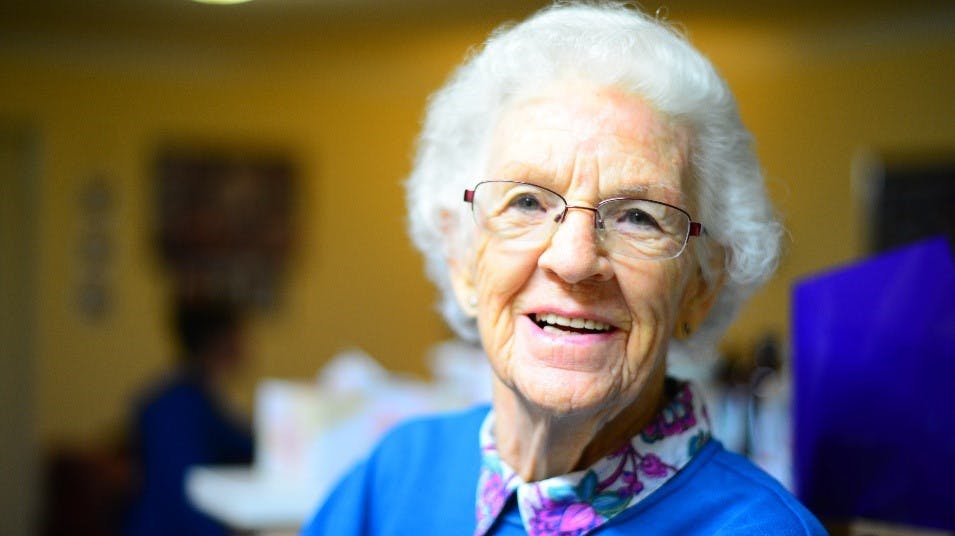
Pros of independent living
Independent living has its advantages and disadvantages.
A major draw towards independent living is that you get to live within the comfort of your home for those who can live independently and manage their daily lives.
Independent living provides individuals with that sense of ownership and retains privacy in the apartments, giving them the freedom and flexibility to manage their own schedules at their discretion.
The cost of independent living vs assisted living is cheaper mainly due to the reduced level of care and services that are provided. Independent living is more for individuals who are capable of managing their daily activities and, therefore require less assistance compared to assisted living which requires extra care.
Cons of independent living
Independent living can have its challenges despite having full control of managing yourself and your activities.
A drawback is that support is not available to you 24/7 in comparison to assisted living. Which could mean that you would have to wait longer for help to come if an emergency was to occur.
Even though you live independently, you start to feel the loneliness and isolation that comes, and this could be more so felt by individuals who are used to being in places where they are socially interactive. This could have an effect on their mental health and well-being.
As an independent living, you’re also now fully responsible for taking care of household chores and the maintenance of your living area. You must see to its upkeep, which can be time-consuming. It is important by the time you decide to live independently that you have adequate skills and knowledge of maintenance of your living area.
It does also come with a bit of reliance on family members and caregivers for assistance which can be seen as a positive, but they might not always be available given they have other commitments like work, or they might not always have the right skills or are limited in certain areas to assist.
Even though the caregiver might be able to provide the required assistance this may cause the individual stress as they might feel like they’re losing their independence.
Factors to consider when choosing between assisted living and independent living
If you’re going through the decision of deciding between assisted living and independent living there are a few major factors you have to consider to ensure you or if you’re deciding for a loved one get the right living arrangement.
The first one is to have a look at the individual’s existing physical health and cognitive abilities. Mainly independent living is more suitable for those who can manage their daily tasks on their own. Whereas those who require assistance with those daily activities and ongoing support with other tasks are better suited for assisted living.
That means having to assess the level of assistance for things like bathing, dressing, eating and if any mobility challenges. Assisted living facilities offer more support for those tasks compared to independent living communities.
Everyone enjoys independence and privacy so when you’re going through the factors of the level of your needs do take into consideration that both do provide different levels of independence. Independent living is at a much higher level compared to assisted living, providing a balanced independent living situation with extra support.
Another factor you’ll have to consider is the financial aspects of both options. Due to the higher level of care and assistance that is provided, typically assisted living costs more compared to independent living, where you’ll have to explore the budget and take into account the needs, wants and preferences of the individual.
When it comes to the social aspect this is important when you’re in the process of choosing between the two assisted and independent living. Everyone needs to have interaction and activities to engage in with other people for our support and well-being. So in an assisted living environment, you’re able to engage with others much and most probably have structured activities. As for independent living, you’re in control of your schedules, you’ll have to factor in social interaction whether it be with your family members or if there can be activities which are arranged that you can attend.
Depending on family support and available resources, this could be a major factor in the decision you make about whether assisted or independent living is the right choice. That is after an assessment has taken place. If there is a strong family support system in place then independent living might well be the most suitable option as they’ll be able to provide you with that extra support you may require. If you need more of the professional requirements then assisted living is more is a more suited living situation.
Additional considerations for bathroom mobility
We now look into the bathroom and how you can ensure the safety of an individual whether they’re living in an assisted or independent living environment. As bathroom solution experts, our job is to provide those with disabled, or mobility needs with a safer bathing solution. In a bid for them to retain as much independence as possible.
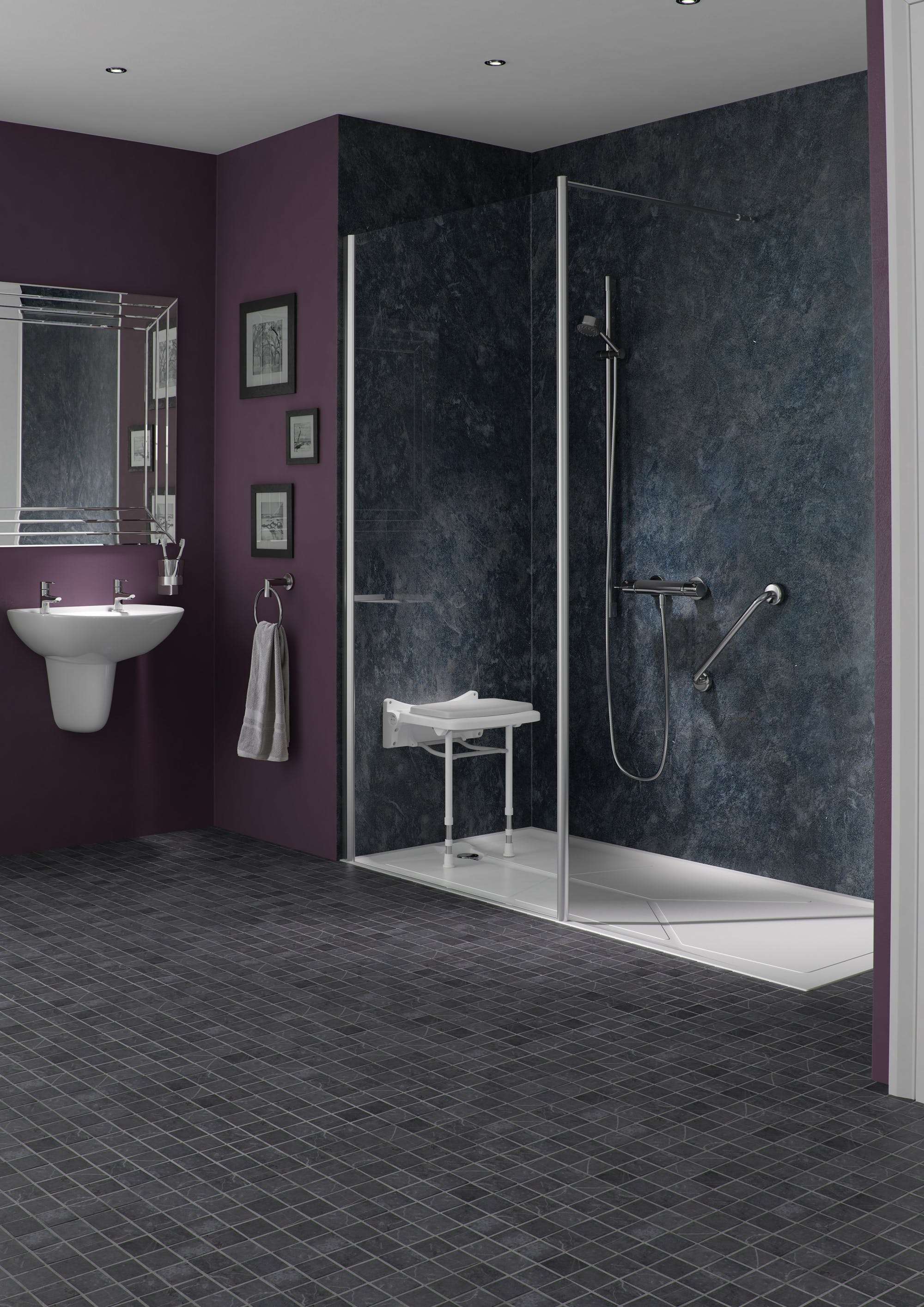
The accessible bathroom design features that would be most suited for an accessible bathroom or shower room include:
> Anti-slip vinyl flooring
> Grab bars
> Accessible wallboards
> Walk-in accessible shower
> Walk-in bath
> Level access shower
.jpg?auto=compress%2Cformat&cs=strip&ixlib=php-1.1.0&s=c9853755422627bc440ea0dfdf564c64)
Safety features like grab bars and anti-slip vinyl flooring are safe and practical details that provide users with increased peace of mind. The anti-slip flooring prevents slips and falls in a bathroom. A major advantage for those who live independently, it is also easy to clean and does not require high maintenance.
The grab bars are beneficial for both sets of individuals in assisted and independent living environments. They can grab onto bars to help support them, whether help on the toilet or moving around the bathroom area.
Accessible wallboards are a fantastic viable option. The easy-to-clean, low-maintenance and cheaper alternative is available in a range of designs. Most important of all is that they’re easy to clean and maintain, putting less pressure on the individuals.

As for a walk-in accessible shower, walk-in bath and level access shower. These options are huge considerations for assisted and independent living individuals because depending on their needs, these options are designed to ensure their safety and ensure they have a comfortable bathing solution.
The assisting devices and equipment are imperative in helping an individual regain as much of their independence, and they’re all relatively easy to use and maintain, overall making their daily life easier.
We will now look at some of the bathroom features in a care home that can also be installed in the bathroom of an individual who is independently living. Major features like an accessible shower or walk-in bath would have to be hugely contemplated depending on the user's needs.
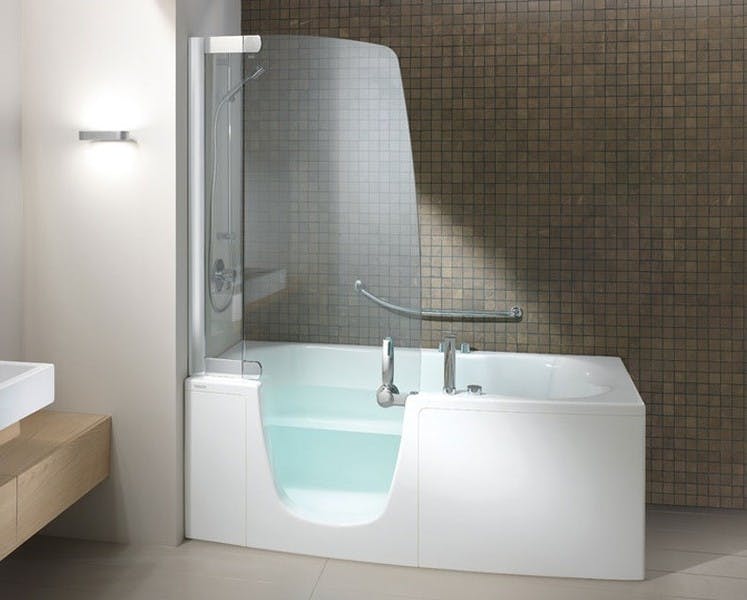
An assessment would also have to be carried out for features like accessible storage and seeing how much how easy it is for them to access the storage and install it in the right areas of the bathroom.
These are just a few of the features that can be reviewed, however, a full assessment would have to be carried out around the users' needs and preferences.
Is an accessible bathroom the right solution in your assisted or independent living solution?
Throughout this blog, we have gone through what the difference is between assisted living and independent living. You’ll find the pros and cons and how you can incorporate accessible bathroom features in either living situation to help regain independence.
As leading bathroom experts in Yorkshire, we aim to provide and make daily lives easier for those who require accessible bathing solutions. If you’d like to get in touch you can either book a free design appointment or call us today!
FAQ
How can I assess my current level of independence and mobility to determine the right living situation for me?
To assess your level of independence and mobility, you’ll have to look at your day-to-day routine and look at how well you perform your daily activities. That includes activities like bathing, eating, using the toilet and how you’re moving around your living situation. As part of that assessment, you should consider, your strength, balance and coordination before you come to a final decision.
How can I transition smoothly from independent living to assisted living if my needs change over time?
In most cases when you are in the process of changing from independent living to an assisted living environment then they’ll have transition programs and assessments to help the new incoming residents to adjust to their new living situations.
Those programs may include devising their personalised care plans and helping them to choose social activities so they can have a sense of belonging, and make sure that all necessary support is in place for them.
What are some specific safety features that I should look for in both assisted living and independent living communities?
To remain safe in both assisted and independent living environments then there should be some safety features to ensure that the individuals have peace of mind and it reduces the risk of accidents occuring. These can include grab bars in the bathroom and non-slip flooring. Adding to safety features this could include supervision and emergency systems that can access where members of staff can go out and attend to them.
Share this Post


.jpg?auto=compress%2Cformat&cs=strip&ixlib=php-1.1.0&s=edc479dd47a66218cd76b89dbc070555)


.jpg?auto=compress%2Cformat&cs=strip&ixlib=php-1.1.0&s=c9853755422627bc440ea0dfdf564c64)


.jpg?auto=compress%2Cformat&cs=strip&fit=clip&h=400&ixlib=php-1.1.0&w=400&s=9fa3862dd64550f902ce5099d00692fb)
